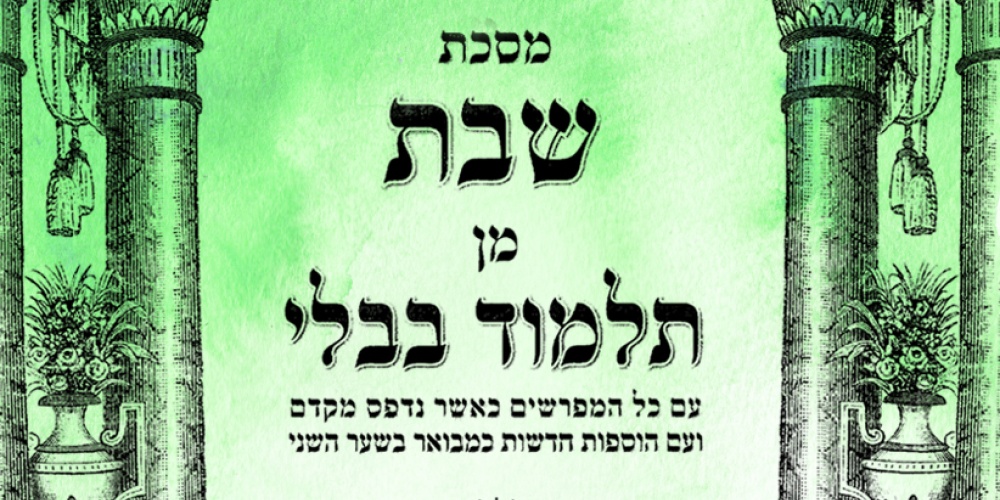
One of the distinguishing marks of many successful companies is the encouragement they give to employees to experiment, encouraging innovation and new ideas. It is this ability to engage in fruitful experimentation, even mind-wandering, that can often lead to great insights and applications. In the best-selling book Start up Nation the authors describe the amazing economic success of Israel, a tiny country that has yet to know a day of peace. Its encouragement of risk taking and creativity, non-hierarchal structure, where “you call your higher-ups by their first names, and if you see them doing something wrong, you say so” all contribute to a flourishing of ideas which spur growth. Comments that would get one fired in many a country are the norm and the expectation in Israel. The contrast to authoritarian countries could not be more stark.
One might think that Judaism, with its myriad rules and its emphasis on rabbinic authority, would eschew such an approach. But such thinking would be misplaced. Even the most open work environments have certain basic rules that must be followed and Judaism is no different. And whereas other legal systems generally limit their laws to areas which impact on others or present a clear physical danger to the perpetrator, Judaism has many laws dealing with moral development and areas of personal choice such as food and sexuality; a concept that is foreign at best, and anathema at worst, to law as understood today in the Western world.
Yet at the same time our tradition allows, encourages and demands chidush, innovation, the offering of new interpretations which may have great impact on the law as practiced. The Torah gave our Sages great interpretive freedom and enormous power to make takkanot, laws to better society and gezerot, decrees to protect society. They are even allowed, if need be, to tell us not to observe certain positive mitzvot (think shofar on shabbat) and can even suspend prohibitions of the Torah. While the Babylonian tradition, the one that is binding upon us, allows such on a temporary emergency basis only, a horaat sha’ah, the Jerusalem Talmud allows such even on a more permanent basis. And even the Bavli allows us to “nullify the Torah” when “there is a time to act for the Lord”- allowing, for example, Rebbe Yehudah Hanassi to commit the Oral Law to writing[1]. Our tradition even demands we “defy” G-d if His rulings do not follow established rabbinic jurisprudence[2].
Not listening to G-d is a tradition dating back to Moshe Rabbeinu. “Three things did Moshe do on his own and the Holy One, Blessed be He, agreed with him [afterwards]. He added one day [to the two days of separation]. He separated from his wife and he broke the tablets” (Shabbat 87a).
On the surface this seems quite chutzpadick - to put it mildly. G-d said husband and wife should separate "today and tomorrow”; by what right did Moshe have to add a third day? And leaving his wife! It would have been bad enough had he not been married but how dare he leave his wife without being instructed so by G-d. Wanting to be able to talk to G-d at any time does not give one permission to basically leave one’s wife to be an agunah. And if he truly cared about G-d so much might he have thought twice before breaking the tablets that G-d Himself had written?.
The Gemara explains that Moshe, in adding a third day of separation made a derasha, an additional level of interpretation, reading between the lines of Torah. “What was his drasha?” the Gemara (Shabbat 87a) asks? ‘Sanctify them today and tomorrow’, today is like tomorrow; just as tomorrow includes the night day so too, today requires the night preceding it. Since the night of that day already passed, derive from here that separation must be in effect for two days besides that day. And from where do we know the Holy One, Blessed be He, agreed with him? Because the Divine Presence did not appear until Shabbat morning” (Shabbat 87a).
Moshe made similar arguments – this time using the interpretive principle of kal vachomer - to derive that he should separate from his wife and break the tablets. And once again the Gemara brings evidence that G-d agreed with Moshe’s decisions.
This Gemara is baffling. Making derashot is exactly how we are meant to understand and interpret the Torah. The vast majority of Torah law is derived from derashot of the type that Moshe made. This is exactly what G-d wants us to do with His Torah. Moshe did not just make this up on his own without warrant – he found textual support for his innovations. It is the Torah, not Moshe, who ultimately made these additions.
Yet this is exactly the point. G-d gave us the Torah but it is man and man only who can interpret it. While Beit Hillel and Beit Shammai may hold opposite views “they are both the word of the living G-d” (Eiruvin 13b) reflecting differing yet legitimate ways of man’s understanding of the Torah. And even if a particular view not find favour in the eyes of G-d it matters little. It is man who defines the rules of the Torah. As the Gemara famously notes regarding the case of tanur shel achnai, (Bava Metzia 59b) “Torah is not in heaven”. Once G-d gave the Torah to man, against the objections of the angels-perhaps for this very reason, He relinquished all control over the direction it would take.
One cannot give a gift and maintain say over how it is to be used. All G-d demands is that we use the tools He gave us to interpret the text. As long as one is making a legitimate derasha, G-d approves even if He “disagrees”. Generally G-d does not signify His approval of a man made derasha, but He did so with Moshe, indicating such in the Torah itself. “And how do we know the Holy One, Blessed be He, agreed with him [regarding separating from his wife]? As it is written: ‘Go say to them: Return to your tents’ (Devarim 5:26) i.e. to your homes and wives. And afterwards it is written ‘And you [Moshe], stand here with Me’”.
The Torah demands complete obedience to its many rules and regulations. We must follow the light and the heavy mitzvoth and are bound by communal customs. But this same Torah demands creativity, originality and fierce independence. But that independence ends when we are discussing obedience to the law, We are bound to follow – perhaps even under penalty of death – the man-made “additions” to the Torah. Authority and autonomy must co-exist in harmony.
[1] A less well-known, but in many ways equally important, use of this principle is the ordinance that one should invoke G-d’s name when one greets people, thus demonstrating the crucial importance of a human greeting (Mishna, Brachot 9:5)
.
[2] If, when and how any of this applies today (and it is mostly inapplicable) is a topic well beyond this devar Torah. Suffice it to say that Jewish law will operate and likely look very different once a Sanhedrin is established.



